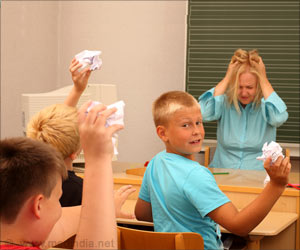As life has become virtual, parents who had previously set screen boundaries for their children, have to shift those boundaries for their kids to continue learning and growing.

‘The phrase “screen time” has broad connotations, some of which can be passive, but using apps to make art or to design are more active and creative uses of screens that may also include opportunities for parents and children to engage with each other.’





In Tech Generation, Lasser and co-author Dr. Mike Brooks discuss the importance of ensuring children are monotasking rather than multitasking when they use screens. As much as people like to think they can balance several tasks at once, research has shown that they do not excel at dividing their attention. When a child is in front of a screen, there should be a clearly outlined purpose for its use. If the child is doing school work on a computer, it is best to make sure all tabs that are not related to school are closed. Lasser, who also serves as the College of Education’s Associate Dean for Research and Sponsored Programs, suggests using this time of increased screen use to teach children important technology-related skills. Parents should check in with their children after they complete various activities, in front of screens or otherwise. Asking children how they feel after screen time and how they feel after they have been playing outside will help children to learn how to self-regulate and develop skills for making their own choices about screen use in the future. Additionally, with misinformation surrounding coronavirus spreading quickly online, Lasser says that parents can be guides in helping their children develop media literacy during this time.
Even with the current inevitability of screens, Lasser notes that everyone needs a break and that learning is not the only important task children have – they should also be growing their social engagement skills. The current situation has given parents more time with their children than ever before and created an opportunity for parents to help their children develop their social engagement skills more fully. Away from screens, there are plenty of options for parents to engage with their children. Lasser suggests nature walks, board games, cooking, reading books, telling stories and telling jokes.
While increased family time creates opportunities, it can also be draining, and parents need to be cognizant of creating breaks for both their children and themselves away from screens. Parents may naturally pick up their phones as an escape, but when it comes to screen time, Lasser says, it is essential for parents to be good, positive social models. While the research on the effects of screens is still emerging, says Lasser, it is not fair for parents to tell children that screen time is bad for them if they are getting mixed messages from their parents.
It is important for parents to put their screens down and engage as well. For those moments of needed alone time, Lasser suggests that every family member take 30 minutes of independent reading time.
Advertisement
Source-Newswise








